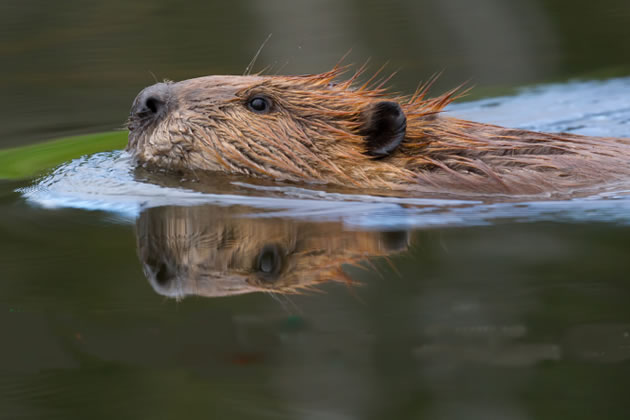Local Beaver Makes Historic Move to Wales
Landmark rewilding effort possible after expansion of Greenford colony
 Beaver reintroduction is part of a wider effort by the London Beaver Working Group. Picture: Citizen Zoo
Beaver reintroduction is part of a wider effort by the London Beaver Working Group. Picture: Citizen Zoo
November 5, 2025
A young female beaver from the Ealing Beaver Project has embarked on a groundbreaking journey to mid-Wales, marking the first time an urban beaver has been translocated to support national rewilding efforts. The move is part of a growing collaboration between the local team and the Dyfi Osprey Project, aimed at restoring Britain’s beaver population and revitalising wetland ecosystems.
The beaver, raised in the UK’s first urban and fully accessible beaver enclosure at Paradise Fields in Greenford, has been relocated to the Cors Dyfi reserve in Powys, where she will join a male beaver named Barti. Conservationists hope the pair will form a new family and contribute to the long-term recovery of the species in Wales.
“This story captures exactly what rewilding should be about – connection, collaboration and hope,” said Elliot Newton, Co-founder and Director of Rewilding at Citizen Zoo. “Our London beavers have already transformed Paradise Fields, showing that wildlife can thrive alongside people in cities. Now, one of the females will help breathe new life into a Welsh wetland.”
The Ealing Beaver Project is a partnership between Ealing Wildlife Group, Citizen Zoo, Ealing Council, Friends of Horsenden Hill, and the Beaver Trust. Since its launch, the project has demonstrated the ecological and social benefits of urban rewilding. Local antisocial behaviour has dropped by 90%, and the beavers’ natural dam-building has helped prevent flooding and improve drought resilience in one of the driest years on record.
Beaver families are typically led by a dominant female and after about three years, young beavers naturally disperse to establish new territories. However, because the Greenford site is enclosed, natural dispersal is not possible. The relocation to Wales was carefully planned to support genetic diversity and ensure the wellbeing of both animals.
Dr Sean McCormack, project lead and licence holder for the Ealing Beaver Project, said, “After many late nights and early mornings trapping, I’m delighted we caught one of our eligible Ealing beaver daughters to help start a new beaver family in Wales. All of our beaver community in Ealing are thrilled our project could help and hope she settles in well with Barti in the glorious setting of Cors Dyfi.”
The Cors Dyfi reserve, managed by Montgomeryshire Wildlife Trust, is undergoing restoration to re-establish its wetland peat bog. Emyr Evans, Dyfi Projects Manager, described the beaver’s arrival as “instrumental” to the success of the landscape restoration initiative.
. The London Beaver Working Group is now exploring ways to create more suitable wetland habitats across the capital to allow future generations of beavers to disperse and thrive.
For more information, visit theealingbeaverproject.com.
Like Reading Articles Like This? Help Us Produce More This site remains committed to providing local community news and public interest journalism. Articles such as the one above are integral to what we do. We aim to feature as much as possible on local societies, charities based in the area, fundraising efforts by residents, community-based initiatives and even helping people find missing pets. We’ve always done that and won’t be changing, in fact we’d like to do more. However, the readership that these stories generates is often below that needed to cover the cost of producing them. Our financial resources are limited and the local media environment is intensely competitive so there is a constraint on what we can do. We are therefore asking our readers to consider offering financial support to these efforts. Any money given will help support community and public interest news and the expansion of our coverage in this area. A suggested monthly payment is £8 but we would be grateful for any amount for instance if you think this site offers the equivalent value of a subscription to a daily printed newspaper you may wish to consider £20 per month. If neither of these amounts is suitable for you then contact info@neighbournet.com and we can set up an alternative. All payments are made through a secure web site. One-off donations are also appreciated. Choose The Amount You Wish To Contribute. If you do support us in this way we’d be interested to hear what kind of articles you would like to see more of on the site – send your suggestions to the editor. For businesses we offer the chance to be a corporate sponsor of community content on the site. For £30 plus VAT per month you will be the designated sponsor of at least one article a month with your logo appearing if supplied. If there is a specific community group or initiative you’d like to support we can make sure your sponsorship is featured on related content for a one off payment of £50 plus VAT. All payments are made through a secure web site. |